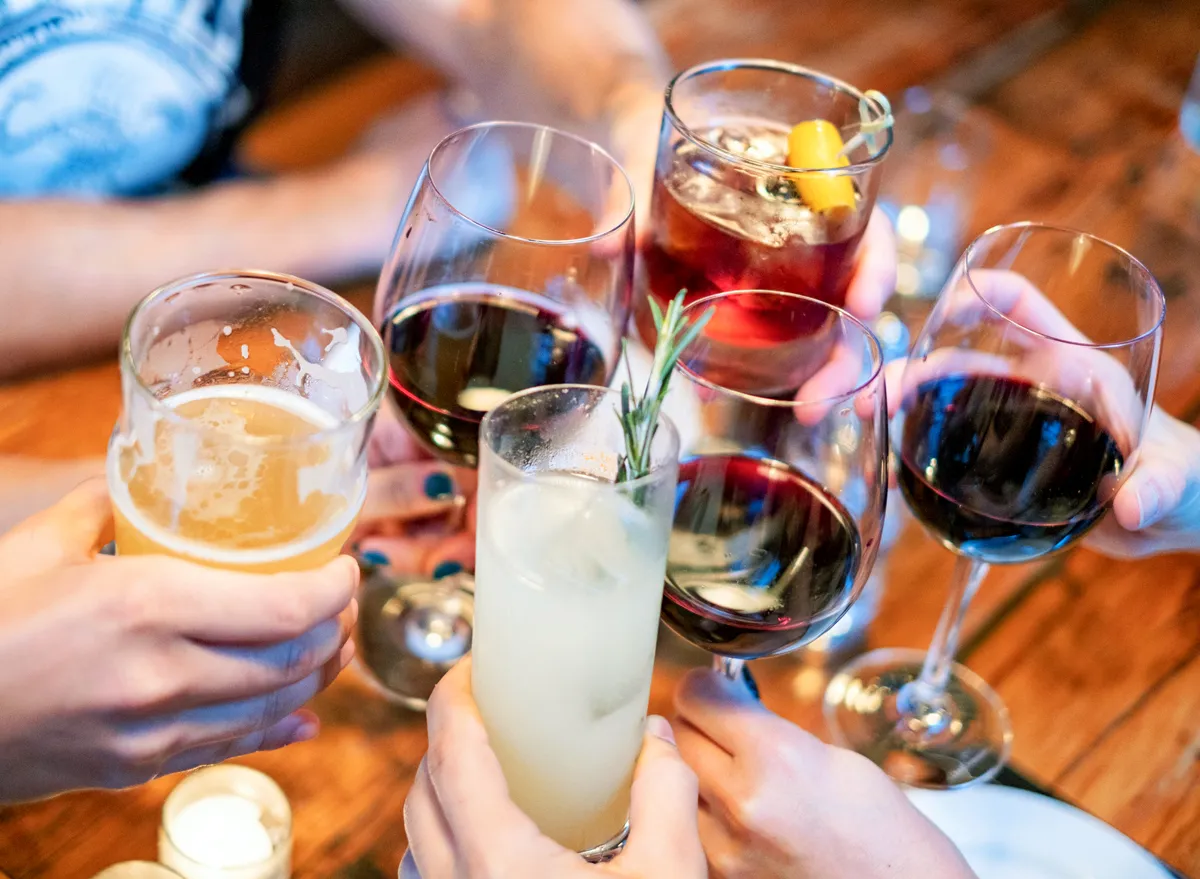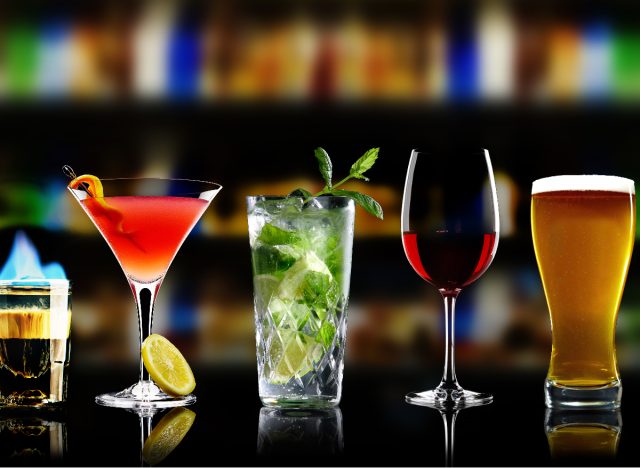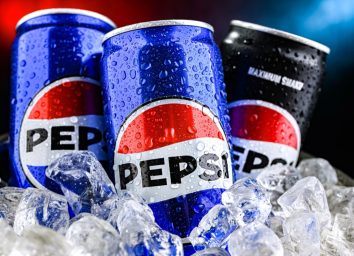Over 68% of Americans Are Clueless About the Link Between Alcohol & Cancer—Are You One of Them?

Plenty of Americans unwind at the end of the day with a glass of wine or kick back on the weekend with a beer. At the same time, a new study has found that a fair share of people in the United States don't know the truth about the potentially dangerous link between alcohol and cancer.
The study that was published in Cancer Epidemiology, Biomarkers & Prevention involved data that had been collected from 3,865 adults during the 2020 Health Information National Trends Survey 5 Cycle 4. The survey asked participants, "In your opinion, how much does drinking the following types of alcohol affect the risk of getting cancer?" The types of alcohol included were wine, beer, and liquor.
The results showed that almost 80% of participants were unaware of the link between wine and cancer, while just over 70% were unaware of the risk of cancer connected to beer, and 68.8% were unaware of the link between cancer and liquor. Beyond that, it was found that 1.7% thought that liquor decreases the risk of cancer, while 2.2% thought beer reduces the risk, and 10% were under the impression that wine would lower the risk of cancer. Additionally, over 50% admitted that they didn't know how alcohol could be linked to cancer.

"Many medical professionals recommend a glass of wine for heart health, so why wouldn't people be confused?" Kimberly Gomer MS, RD, LDN, tells Eat This, Not That! "The reality, based on science is that all alcoholic drinks, including red and white wine, beer, and liquor, are linked with cancer. The more you drink, the higher your cancer risk."
"The ethanol in alcoholic drinks breaks down to acetaldehyde, a known carcinogen. This compound damages DNA and stops our cells from repairing the damage. This can allow cancerous cells to grow," Gomer continues, elaborating on the alcohol-cancer connection.
"Alcohol can affect levels of hormones like estrogen—particularly with breast cancer," Gomer continues. "These hormones act as messengers that tell our cells to grow and divide. The more cells divide, the more chances there are for something to go wrong and for cancer to develop."
"Alcohol makes the body less able to break down and absorb several important nutrients such as vitamins A, C, D, E, and folate, [which are] nutrients that help protect the body against cancer," Gomer adds.
Furthermore, Gomer notes that "alcohol provides empty calories," and "consuming extra calories can lead to weight gain, which can increase a person's cancer risk."
"Alcohol is the strongest modifiable risk factor for cancer after tobacco use and excess body weight," she says. "It is important to understand that alcohol increases the risk of at least six cancers, including colorectal, breast, esophageal, liver, stomach and oral cancers."
"These studies validate the message I give to clients every day—and that is: Avoid alcohol as much as possible—none is best and the least amount possible is your best bet," Gomer concludes.







